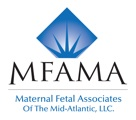Our Services
Amniocentesis
What is amniocentesis?
Amniocentesis is a procedure in which a small amount of amniotic fluid (the fluid around the baby) is obtained by passing a very thin needle through the mother’s abdominal wall into the amniotic sac. This is done under direct visualization with ultrasound guidance to avoid injuring the baby. The amniotic fluid is sent to specialized laboratory to study fetal cells and DNA.
What are the indications for amniocentesis?
Amniocentesis is usually done between 15 and 20 weeks to determine whether the baby has chromosomal abnormality, such as Down Syndrome. Other genetically related medical disorders such as sickle cell anemia, cystic fibrosis, Spinal muscular atrophy, Thalassemias, and Tay Sachs Disease can also be diagnosed by amniocentesis. The procedure is done after extensive genetic counseling.
Amniocentesis may also be done to determine fetal lung maturity, or to drain excessive amniotic fluid accumulation (Polyhydramnios).
Who should have amniocentesis?
Some common indications for amniocentesis:
- Advanced maternal age (mother’s age is 35 years or more at the time of delivery). This indication is becoming much less common with the introduction of very accurate noninvasive screening tests such as cell free DNA.
- Abnormal findings on first trimester or second trimester screening suggestive of a malformed fetus.
- Parents are carriers of diseases such as Sickle Cell Anemia, Cystic Fibrosis, Thalassemias, and Tay Sachs Disease.
Are there Risks with Amniocentesis?
Genetic amniocentesis carries a small risk of miscarriage: approximately 1 in 500 tests. Infrequently, leakage of amniotic fluid is noticed after the procedure. In more than 90% of the time, this leakage is a transient event and the pregnancy will continue as expected.
We at MFAMA have performed thousands of amniocentesis and all our physicians are skilled in the procedure.
What to expect after amniocentesis?
There is no need to stay in bed rest after amniocentesis; however, it is imperative to avoid heavy exertion such as exercising, or heavy weight lifting for 24 to 48 hours after the procedure.
Cramping is expected after amniocentesis and iif severe enough to cause discomfort, you may need to stay off your feet, increase fluid intake, or take two regular plain Tylenol. If vaginal bleeding or leakage of fluid takes place, you need to inform your Obstetrician immediately.
Request an Appointment
We invite you to fill out this form to request an appointment. Our scheduling staff will give you a call within 24 hours. For all urgent needs, please call the office directly.
Submit Your Story
We are compassionate about our patients and want to hear from you. Please share your story by clicking on the link below.
